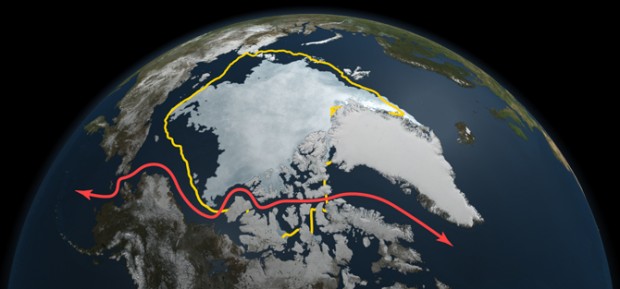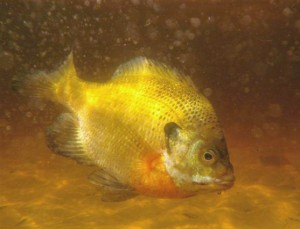The winner of the Nobel Prize in chemistry was announced this morning in Stockholm.
Daniel Shechtman of Technion, the Israel Institute of Technology, in Haifa, Israel, won for his 1982 discovery of quasicrystals.
Quasicrystals are unusual materials which have some of the properties of a regular crystal, but have a more elaborate and complex structure at the atomic level. This unique material does not conduct heat or electricity well and, because of this, the quasicrystals can be used in thermoelectric materials, which converts heat into electricity and vice versa.
The Nobel prizes for physics and physiology or medicine were also announced earlier this week.
The 2011 Nobel Prize in physics went to three people; Saul Perlmutter from Lawrence Berkeley National Laboratory and University of California; Brian P. Schmidt of the Australian National University; and Adam G. Riess from Johns Hopkins University and the Space Telescope Science Institute.
By studying distant supernovae, or exploding stars, the three physicists discovered that our universe continues to expand at an accelerating rate, even after more than 14 billion years since the Big Bang.
This year’s Nobel Prize in physiology or medicine was awarded to the late Ralph M. Steinman for his discovery of the dendritic cell and its role in adaptive immunity; and to scientists Bruce A. Beutler and Jules A. Hoffmann for their discoveries concerning the activation of innate immunity.
Sadly, Ralph Steinman died from pancreatic cancer just three days before the announcement was made.
The Nobel Prizes for these science-based categories will be awarded in a ceremony to be held Dec. 10 in Stockholm, Sweden.
Arctic ice continues to decline

NASA satellite data reveals how this year’s minimum sea ice extent, reached on Sept. 9 as depicted here, declined to a level far smaller than the 30-year average (in yellow), opening up Northwest Passage shipping lanes (in red). (Graphic: NASA Goddard’s Scientific Visualization Studio)
Arctic sea ice continues to decline; the summertime sea ice cover narrowly avoided a new record low, which was set back in 2007.
That’s according to satellite data from NASA and from the NASA-supported National Snow and Ice Data Center (NSIDC) at the University of Colorado in Boulder.
The Arctic ice cap grows each winter as the sun sets for several months, then shrinks each summer as the sun rises higher in the northern sky. The Arctic sea ice reaches its annual minimum extent each year in September.
NASA monitors and studies the changing sea ice conditions in both the Arctic and Antarctic regions with a variety of spaceborne and airborne research capabilities.
Joey Comiso, a senior scientist at NASA’s Goddard Space Flight Center in Greenbelt, Md., says that not only is the sea ice declining, but the pace of the decline is also much more drastic.
Climate models constructed by researchers suggest the Arctic could lose almost all of its summer ice cover by 2100. However, they also found that that the ice extent has declined faster in recent years than their models had predicted.
Green tea may slow weight gain
Green tea has become a popular beverage in recent years, most likely because of its many health benefits. Now food scientists at Penn State University in State College, Penn., have found another reason to drink the brew; it may slow down weight gain and serve as another tool in the fight against obesity.
Researchers fed obese mice Epigallocatechin-3-gallate (EGCG), a compound found in green tea, along with a high-fat diet. They found that the mice gained weight at a significantly slower rate than the control group mice, which didn’t get the green tea supplement
In addition to gaining weight at a slower rate, says Joshua Lambert, an assistant professor of food science in agricultural sciences at Penn State, the mice fed the green tea supplement showed a nearly 30 percent increase in fecal lipids, which suggests that the EGCG was also limiting fat absorption.
The researchers released their findings in the current online edition of the journal “Obesity.”
Fish behavior could determine its fate
A fish’s personality could determine how likely it is to be caught or captured, according to Canadian researchers.
The Queen’s University in Ontario found that anglers who fished near rocky outcrops or in areas of water with submerged vegetation seemed more likely to catch timid fish who prefer safe, hidden habitats, while those fishing in open water were more likely to reel in bolder fish.
The researchers examined the personalities of bluegill sunfish which were caught using two different capture techniques; angling, which is the traditional hook attached to a fishing line; and a method called beach seining, which involves dragging a long net through water to surround and ensnare fish.
Fish caught with the angling technique appeared to be more timid than fish captured by the beach seining method.
According to the research team, the differences they found in personalities of fish could have significant evolutionary and ecological consequences for affected fish populations, as well as for the quality of fisheries.






















I used green tea and helped me a lot in reducing fat in the body and whenever encounters an article about green tea I always thrilled with it.Thanks for great information!
for mor updates kindly send to unec at the university of nigeria